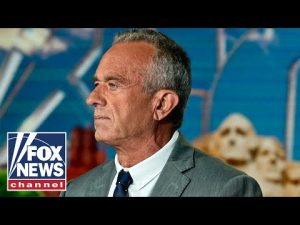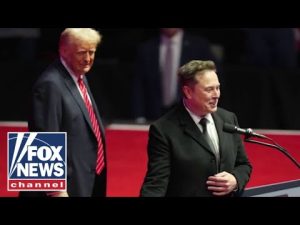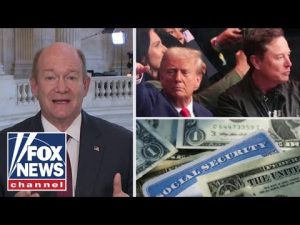In a surprising and somewhat head-scratching move, tech entrepreneur Elon Musk made a visit to the CIA alongside former Director of National Intelligence John Ratcliffe to talk about cryptocurrency—specifically, Dogecoin. According to Musk, Dogecoin’s remarkably open and transparent processes could potentially teach even the CIA a thing or two about efficiency and transparency. One might chuckle at the idea of a notoriously hush-hush government agency taking notes from a meme-based cryptocurrency famously emblazoned with a Shiba Inu dog, but perhaps such out-of-the-box thinking isn’t as laughable as it seems. Complicated espionage tasks would surely benefit from the uncanny transparency of decentralized technologies like Dogecoin, where every action is chronicled on its network for the public to scrutinize.
Musk’s candidness didn’t stop at cryptocurrencies. Aside from his quirky venture into government consultations, he turned his attention to more ominous subject matter. Musk addressed the ongoing virtual and physical assaults targeting his ventures, like Tesla. He referred to these attacks as forms of terrorism, albeit the kind that occurs on malicious computer screens and sometimes the streets. Musk wasn’t just shaking his head at mischief-makers but also promising to trace back these acts to their masterminds. He suggested that instead of just nabbing the “foot soldiers”—the ones doing the actual dirty work—it’s high time to go after the “generals” funding and orchestrating these misdeeds, making it sound like a blockbuster action movie where justice would be dealt with precision and flair.
Pam Bondi, the Attorney General, echoed Musk’s sentiments, sternly emphasizing the need to crack down hard and potentially aim even higher up the organizational ladder. There’s an air of vigilante justice about the discussions, suggesting that no stone will be left unturned, and no bank account left unchecked. It seems they aim to follow the money trail, which, in their view, always leads to the source of corruption. While Musk’s determination may elicit a smirk or an eye roll, depending on who you ask, the resolve to hunt down the shadowy figures pulling the strings is not without its supporters.
Then came another burning issue where Attorney General Bondi’s actions took the spotlight—a move to seek the death penalty for Luigi Mangioni, accused in a stark case of calculated assassination. In times where the federal government has meted out softened stances toward death penalty cases, this decision reflects a stark contrast. As if to stir the political pot even more, it stands glaringly against recent moves by President Joe Biden to commute death sentences, converting them to life sentences instead. Bondi’s determination served as a call for serious consequences, asserting that without them, the cycle of crime might never cease.
The article wrapped up with a brief nod to the FBI’s internal struggles as detailed by Special Agent Nicole Parker during a congressional hearing on waste, fraud, and abuse—especially during the current administration. Parker lamented her difficult choice to leave the agency she once cherished due to what she described as persistent political and social politicization. Her poignant anecdotes of agents losing their lives while the FBI redirected its resources to less urgent matters added depth to the narrative. The mention of funds being funneled into DEI efforts brought into sharp focus the heated discourse about priorities and accountability within important federal agencies. As the article tied these threads together, it left readers pondering the future effectiveness of these vast organizations and whether innovative ideas like Elon Musk’s can lead to real change.







